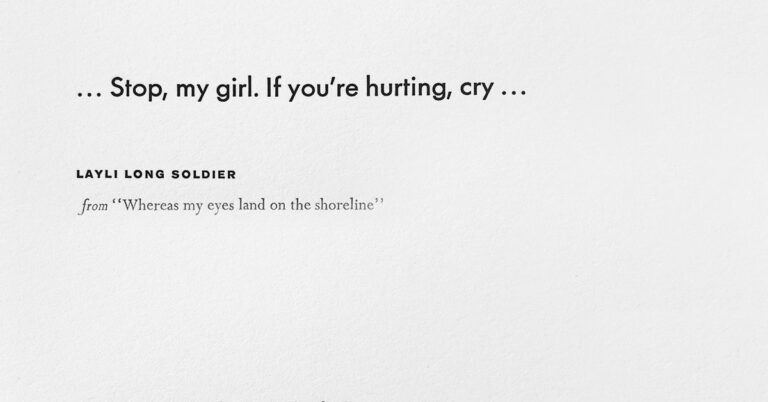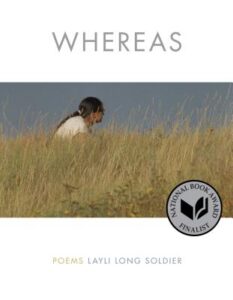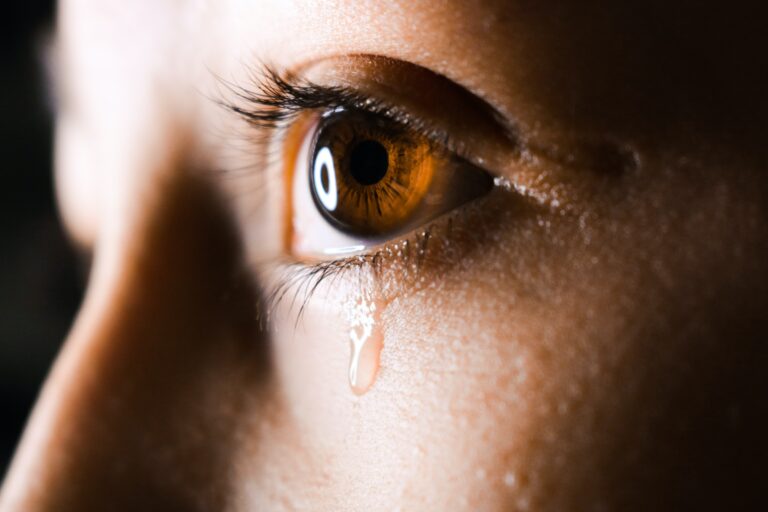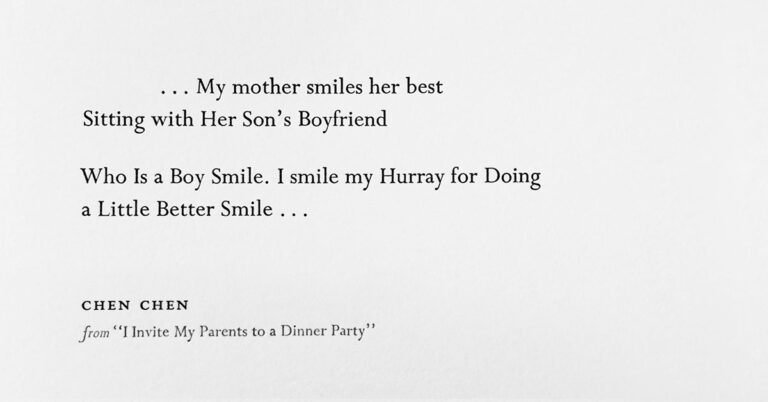Layli Long Soldier
WHEREAS my eyes land on the shoreline
When you feel like crying, do you cry? Or do you stifle it? Why?
The U.S. Congress 2009 “Joint resolution to acknowledge a long history of official depredations and ill-conceived policies by the Federal Government regarding Indian tribes” stated “Whereas the arrival of Europeans in North America opened a new chapter in the history of Native Peoples.” Layli Long Soldier wrote poems in response to this resolution and its non-consultative process. In this poem, she speaks of the need to let griefs and laments be heard and acknowledged.

Image by Expedition Press/Expedition Press, © All Rights Reserved.
Guest

Layli Long Soldier is the author of WHEREAS, a winner of multiple awards including the Whiting Award, and a finalist for the National Book Award. She is the recipient of a 2015 Lannan Fellowship for Poetry and a 2015 National Artist Fellowship from the Native Arts and Cultures Foundation. She lives in Santa Fe, New Mexico.
Transcript
Pádraig Ó Tuama: My name is Pádraig Ó Tuama. And one of the things I love and admire about poetry, but also fear about poetry, is that it asks you to name deep truths. It asks you to open up lament. And it asks you to take away shallow comforts and to let the truth of what you wish to say in pain or the truth of what you wish to hear in acknowledgment rest true, and to live with it.
[music: “Praise The Rain” by Gautam Srikishan]
Ó Tuama: Layli Long Soldier’s poem “Whereas my eyes land on the shoreline.”
“WHEREAS my eyes land on the shoreline of, “the arrival of Europeans in North America opened a new chapter in the history of Native Peoples.” Because in others, I hate the act
of laughing when hurt, injured or in cases of danger. That bitter hiding. My daughter picks up new habits from friends. She’d been running, tripped, slid on knees and palms onto asphalt.
They carried her into the kitchen, she just fell, she’s bleeding! Deep red streams down her arms and legs, trails on white tile. I looked at her face. A smile
quivered her. A laugh, a nervous. Doing as her friends do, she braved new behavior, feigned a grin—I couldn’t name it but I could spot it. Stop, my girl. If you’re hurting, cry.
Like that. She let it out, a flood from living room to bathroom. Then a soft water pour I washed carefully light touch clean cotton to bandage. I faced her I reminded,
In our home in our family we are ourselves, real feelings. Be true. Yet I’m serious when I say I laugh reading the phrase, “opened a new chapter.” I can’t help my body.
I shake. The realization that it took this phrase to show. My daughter’s quiver isn’t new— but a deep practice very old she’s watching me;”
[music: “What Did You Not Hear” by Gautam Srikishan]
Ó Tuama: I was so struck by the way within which this poem takes legislation and takes official political documentation and engages with it in poetry. So often, poetry or the arts can be seen as peripheral to the real stuff of political life. And this poem is a profound poetic engagement with the quality of public language, which is ultimately what poetry is. And it is ultimately, also, what politics is — the question of the quality of public language being used.
Layli Long Soldier responded to an apology, an inept apology that was given by the American president in 2009, Barack Obama. The title of this apology that came from the government is 35 words. It’s a long title. Here it is: “Joint resolution to acknowledge a long history of official depredations and ill-conceived policies by the federal government regarding Indian tribes, and offer an apology to all Native peoples on behalf of the United States.”
And it was an apology that wasn’t read out and that didn’t have any consultation or response from Native peoples, an apology to Native peoples without really acknowledging them. The language was all about “whereas this; whereas that; whereas that. We apologize. And here’s a disclaimer: You can’t take us to court.” And she takes those sentences of the whereas, whereas, whereas and writes a poem for each, and in this poem, it is one of 20 poems that begin with “whereas” by Layli Long Soldier in this book, where she is taking very seriously the content and the language being used and pushing them and criticizing them and finding corners of protest and lament and finding corners to say, language needs to be better than this.
[music: “First Grief, First Air” by Gautam Srikishan]
Ó Tuama: The structure of this poem is really fascinating, because you open with a quote and a perspective where she says that she hates the act of laughing when hurt or injured or in danger. And then we’re dropped into a story — story of her daughter being carried into the kitchen after falling. She’s bleeding, and she’s trying to quiver out a smile — to be brave. And the speaker of the poem says not to. The speaker of the poem thinks, oh, my daughter’s picked that up from her friends. And the speaker of the poem is saying, no, no, cry if you’re hurt.
And then it comes back to the policy, and she realizes, my daughter didn’t learn this from her friends, my daughter learned this from me. And I have learned this from the way that “the arrival of Europeans in North America opened a new chapter in the history of Native Peoples.” And she is beginning to recognize that it was in her, and it’s already being passed on to her daughter. And her daughter has this deep practice, very old, and is watching her. So, suddenly you hear this history being present in her daughter, who she’s comforting after having injured herself.
She’s realizing that she’s hidden the pain, and I think this poem is proposing, also, that she’s allowed somebody else to tell her what the acceptable level of acknowledging that pain in public is like. She, in herself, and others too, it seems to be suggesting, have taken the idea of saying, “Put on a brave face. Don’t cry. Don’t do this. Don’t lament in that way, lament in this way. Don’t acknowledge in that way, lament in this way,” and that there’s a power of the censoring, and somehow, the editing about what lament for genocide should look like in public.
And through the story of her daughter bleeding, she’s recognizing — and I think this poem is pushing to say, in light of this apology that was inept and ineffectual — actually, we and I and this poem are proclaiming lament. And the accusations that come from lament and the demand for acknowledgment that come from lament will be on our own terms and should not be dictated by somebody who wants you to laugh it off; put a brave face on it; move to quick apology; move to say, “Oh, but we’re all friends now, and we’re in the healing process.” This is saying, no, we haven’t even done step one. And I’m going to locate me back there, and I’m going to recognize that throughout generations, there has been this learned behavior of lament according to the terms by which lament will be acceptable. And that’s stopping.
[music: “At Dusk” by Gautam Srikishan]
Ó Tuama: This poem has such a remarkable usage of particular words. Here’s some of them: land, shoreline, injured, danger, hiding, running, bleeding, deep red streams, trails on white tile, quivered, braved, feigned, a flood, faced, reminded, real, true, serious, shake, practice, old, watching.
When you take out these words from this remarkable poem, you can hear so much of a repeated story of history happening over and over again, even in this story of her daughter injuring herself. And it has so much resonance of weaponry and war and survival and fear. This is a story about what’s happening now and a story about what has been happening for a long time. And her daughter’s in this story.
In this poem, the fact that the apology was not read out loud by the president, and also that no tribal leaders or official representatives from over 560 federally recognized tribes in the U.S. were invited — this poem is saying, let’s face that. Let’s face each other. The line, “I faced her I reminded, In our home / in our family we are ourselves, real feelings. Be true.”
That line seems to be a call to those who enacted the apology to pay attention to the how of apology, and also, the content of an apology. “A new chapter” is the phrase in the apology. That’s what you might say if you get married or if you move home or something lovely happens, or maybe even something different happens, something that you weren’t expecting, and it’s a new chapter — instead of genocide; instead of the annihilation of your languages; instead of the degradation of the sophisticated systems of governance that you have amongst you and that have been existing and flourishing for centuries. That’s not a “new chapter.” That’s a burning. This poem is filled with the most devastating critique of this very misleading statement and the fact that this misleading statement also has hidden within it the recognition that the arrival of European peoples was part of a project to try to make Native peoples history, not present.
[music: “KeoKeo” by Blue Dot Sessions]
Ó Tuama: So something in this poem I think is really interesting is, it can be very hard to witness lament when you’re in it. And for European-descended people, it can be hard to hear the laments from people whose lives have been annihilated as a result of European policy and practice and stealing. And I’m not saying that for sympathy. It’s an accusation, and it should be hard, and harder than hard.
And one of the things that this poem calls into mind is, who is lament for? In this poem, the lament is for the speaker and her daughter and all before them.
The poem invites us to think about time and to think about how national traumas set something in place that will continue for a very long time, in the minds of some, and set things in place that will be relegated to the past, in the imaginations of others, because for some, what is taken away — land, sovereignty, language, governance, self-determination — for some, when that’s taken away, it remains taken away.
And I can hear European cries of, “Oh, but look, that was so long ago.” But it’s not long ago, because it’s now; because those things were taken, and they’re still taken. Lots of them were destroyed. Languages have been destroyed, and they’re still destroyed. And so it’s not history. It’s now, and now, and now, and it’s the next generation too, in the daughter. And her daughter’s daughter’s now.
So one of the invitations of this poem is to pay attention to time and the need for lament. And consider what repair, what bandage, what flood, what facing, what real feelings, what true, what acknowledgment and actual apology, is like.
[music: “At Dusk” by Gautam Srikishan]
Ó Tuama: Layli Long Soldier’s poem “Whereas my eyes land on the shoreline.”
“WHEREAS my eyes land on the shoreline of, “the arrival of Europeans in North America opened a new chapter in the history of Native Peoples.” Because in others, I hate the act
of laughing when hurt, injured or in cases of danger. That bitter hiding. My daughter picks up new habits from friends. She’d been running, tripped, slid on knees and palms onto asphalt.
They carried her into the kitchen, she just fell, she’s bleeding! Deep red streams down her arms and legs, trails on white tile. I looked at her face. A smile
quivered her. A laugh, a nervous. Doing as her friends do, she braved new behavior, feigned a grin—I couldn’t name it but I could spot it. Stop, my girl. If you’re hurting, cry.
Like that. She let it out, a flood from living room to bathroom. Then a soft water pour I washed carefully light touch clean cotton to bandage. I faced her I reminded,
In our home in our family we are ourselves, real feelings. Be true. Yet I’m serious when I say I laugh reading the phrase, “opened a new chapter.” I can’t help my body.
I shake. The realization that it took this phrase to show. My daughter’s quiver isn’t new— but a deep practice very old she’s watching me;”
[music: “Praise The Rain” by Gautam Srikishan]
Lily Percy: “WHEREAS my eyes land on the shoreline” comes from Layli Long Soldier’s book, WHEREAS. Thank you to the Permissions Company, on behalf of Graywolf Press, who gave us permission to use Layli’s poem. You can find a link to the poem in our show notes, along with Pádraig’s guiding question for this episode.
Poetry Unbound is Chris Heagle, Erin Colasacco, Serri Graslie, Eddie Gonzalez, Lilian Vo, Christiane Wartell, Karen Navarre, Karyn Towey, Sue Ariza, and me, Lily Percy. Our music is composed and provided by Gautam Srikishan and Blue Dot Sessions. This podcast is produced by On Being Studios, which is located on Dakota land. We also produce other podcasts you might enjoy, like On Being with Krista Tippett, Becoming Wise, and This Movie Changed Me — find those wherever you like to listen or visit us at onbeing.org to find out more.
Books & Music
Recommended Reading
The On Being Project is an affiliate partner of Bookshop.org and Amazon.com. Any earnings we receive through these affiliate partnerships go into directly supporting The On Being Project.








